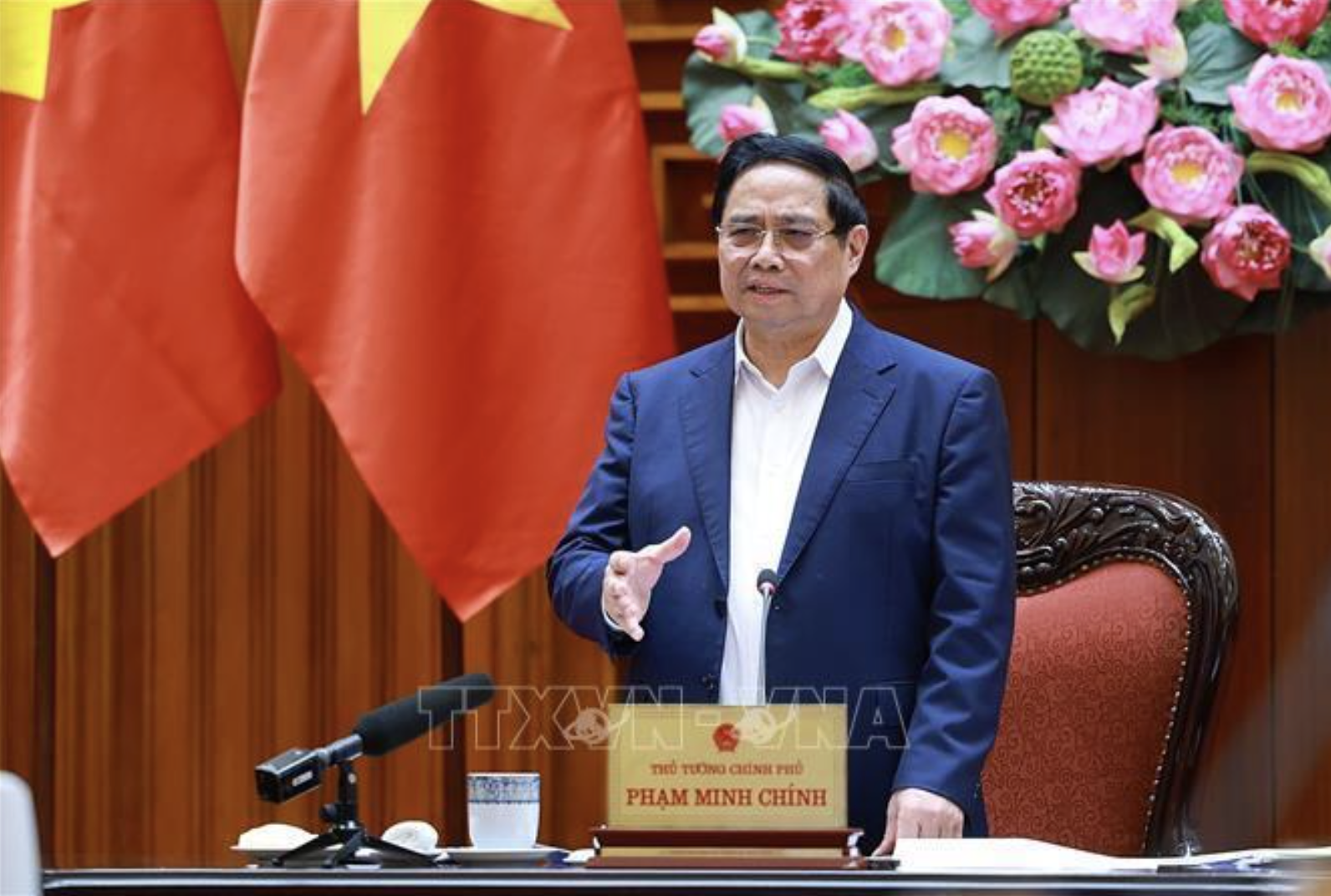
Prime Minister chairs permanent Government meeting on railway projects
19:05 | 23/03/2025 23:11 | 24/12/2025News and Events
On November 25, the youth inspirational talks themed “Intelligent Generation Now” officially launched the 2025 Autumn Economic Forum in Ho Chi Minh City. With the support of the World Economic Forum (WEF) and the participation of UNESCO, RMIT Vietnam and CMC Corporation, the talk show gathered more than 500 outstanding young participants.
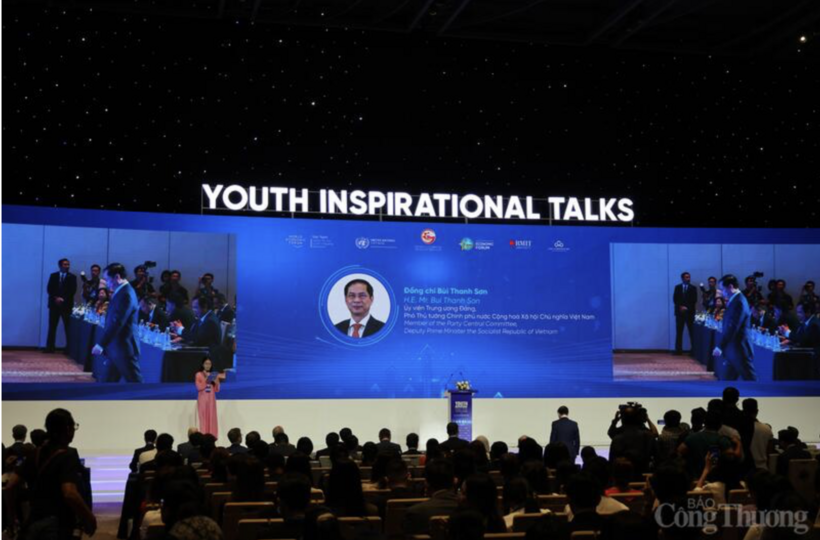
The scene of the “Intelligent Generation Now” Talks.
The forum welcomed Deputy Prime Minister Bui Thanh Son and Chairman of the Ho Chi Minh City People’s Committee Nguyen Van Duoc. From the international side, Stephan Mergenthaler, Chief Executive Officer of the WEF, also attended. Deputy Minister Phan Thi Thang represented the Ministry of Industry and Trade, with additional participation from international organizations, business leaders, and top experts.
Young generation and the future of sustainable development
At the forum, Professor Scott Thompson-Whiteside, President of RMIT Vietnam, said that in the context of accelerated digital transformation, advanced manufacturing and a strong green transition, Vietnamese youth play a crucial role in promoting sustainable development.
The forum emphasized the importance of dialogue and cooperation in driving economic development and opening new opportunities for Ho Chi Minh City. RMIT Vietnam consistently pursues this spirit through extensive research, education and industry engagement, contributing to sustainable growth and creating pathways for the young generation to make meaningful contributions to the future prosperity of Vietnam and the region.
According to Professor Thompson-Whiteside, global challenges such as climate change require innovative solutions, and Vietnamese youth with their technological literacy, flexibility and breakthrough thinking will be at the forefront of developing green technologies and environmentally friendly digital solutions.
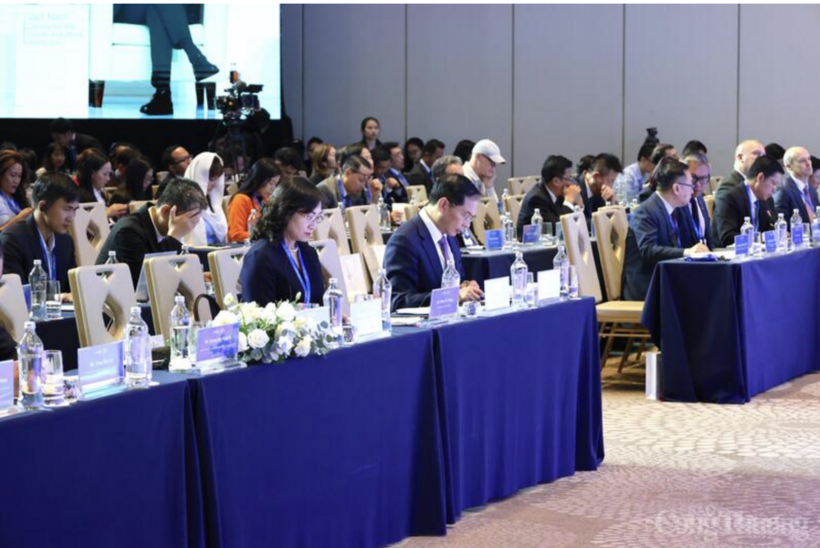
Delegates at the talks.
Young generation and a sustainable future
At the forum, Professor Scott Thompson-Whiteside, President of RMIT Vietnam, said that in the context of rapid digital transformation, advanced manufacturing and accelerated green transition, Vietnamese youth hold a pivotal role in driving sustainable development.
The forum underscored the importance of dialogue and cooperation in promoting economic growth and opening new opportunities for Ho Chi Minh City. RMIT Vietnam has consistently pursued this mission through research, education and extensive industry engagement, contributing to sustainable growth and creating pathways for young people to meaningfully shape the future prosperity of Vietnam and the region.
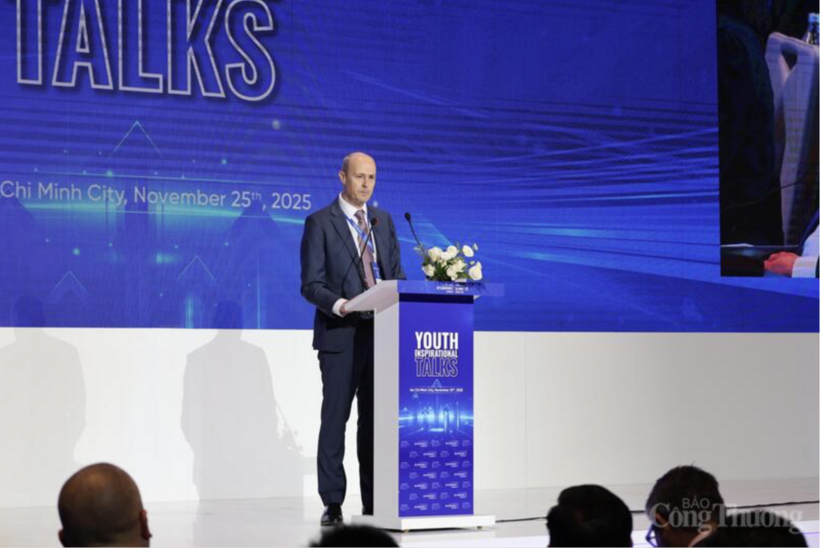
Professor Scott Thompson-Whiteside, President of RMIT Vietnam.
According to Professor Thompson-Whiteside, global challenges such as climate change demand innovative solutions, and Vietnamese youth equipped with technological fluency, flexibility and breakthrough thinking will be at the forefront of developing green technologies and digital solutions that are environmentally friendly.
“With the energy, knowledge and leadership of young people, we can work together to build a sustainable, inclusive and resilient future for Vietnam and the wider region. The future of work is shifting from efficiency-driven goals to creativity-driven goals. The spirit of ‘learn fast - test fast - fail fast - improve fast’ is what I hope you will take with you after today’s discussion,” he emphasized.
At the forum, Stephan Mergenthaler, Chief Executive Officer of the WEF, delivered an inspiring address on global contexts and development trends in the digital era, igniting the spirit of Vietnamese youth in both the digital and green transitions toward sustainable development from a global perspective.
“When we work with leading companies around the world, a key question always arises: Which skills will change in the coming years? According to WEF’s Future of Jobs report, 39% of core workforce skills will change by 2030. This shows that the jobs of the future will require capabilities many of you may not even have heard of today,” Mergenthaler noted.
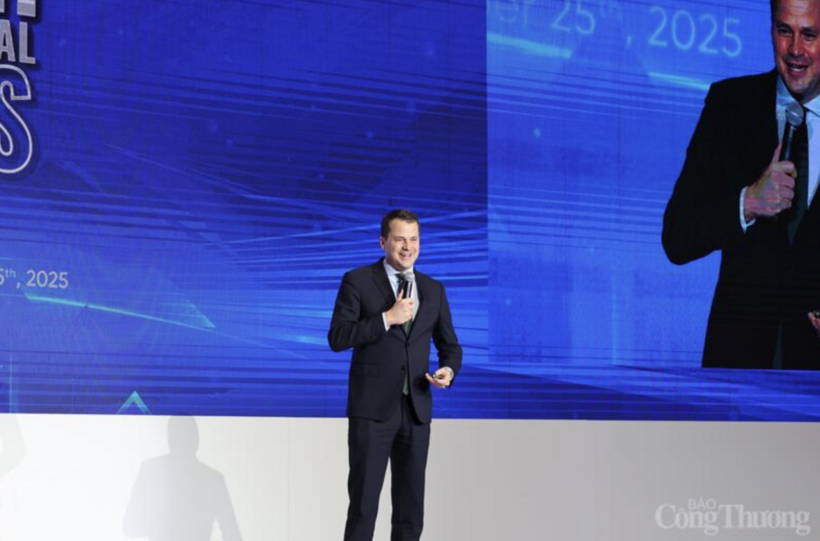
Stephan Mergenthaler, Chief Executive Officer of the WEF.
Changing mindsets to build a “new world”
Stephan Mergenthaler emphasized that technology is driving exponential change. The future of work will involve cooperation between humans and machines. Increasingly, people will manage teams of robots and AI systems performing tasks previously completed by humans.
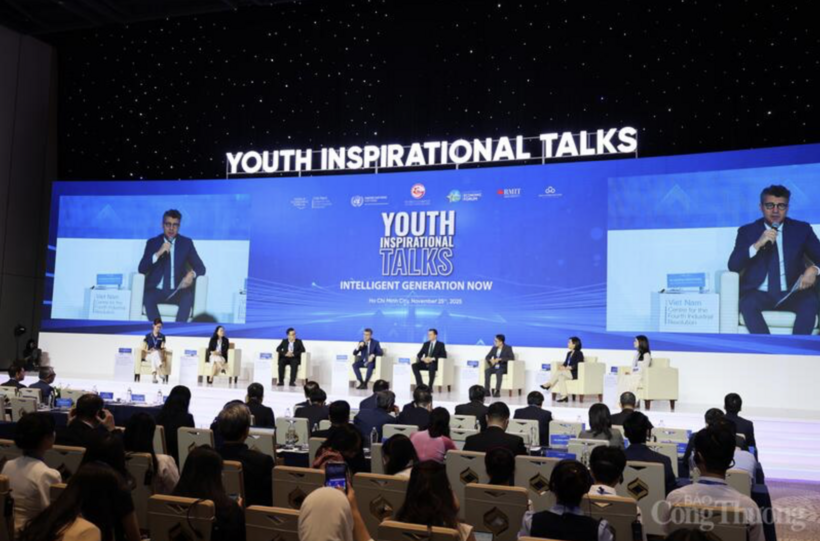
Dialogue session with outstanding young representatives in Vietnam.
However, this does not mean technology will replace people; rather, it is redefining what only humans can do.
Another noteworthy point is that when companies are asked what is hindering their transformation, 63 percent cite the skills gap as the biggest barrier. In other words, businesses do not yet have enough workers with the capabilities needed for future operating models, largely because of the exponential pace of technological change.
“We are living in the boom era of artificial intelligence, reflected in the rapid expansion of computing power for training large language models. Not only AI, but quantum computing is also advancing quickly, opening the door to breakthrough leaps in computational capacity,” he said.
According to his projections, while 47% of tasks are still performed entirely by humans today, by 2030 the landscape will be more balanced: roughly one-third of tasks carried out by technology, one-third through human - machine collaboration, and the remainder by humans alone. This is the model the new generation must prepare for a model built on human-AI cooperation.
When asked how companies plan to respond to the rapid development of AI, results show that 77% will focus on reskilling their existing workforce, 69% will recruit new employees with AI skills, and 62% will seek talent capable of working effectively with AI. These findings affirm an important point: the future is not about AI replacing humans but about building hybrid teams in which machines provide computational power while humans contribute creativity, strategic thinking and emotional intelligence.
Chief Executive Officer of the WEF said that in this new context, young people must shift their thinking, mindset and actions to be ready for a transformed work environment. He outlined several essential mindset transitions the new generation must embrace:
First, shift from competition with AI to collaboration with AI. Technology is not a rival, it is a tool enabling people to focus on higher-value work.
Second, shift from a static skill set to a constantly evolving one continuously learning, adapting and “evolving” with change.
Third, shift from specialization to integration, embracing interdisciplinary thinking. The new world requires the ability to connect fields to create new solutions, something machines cannot yet replicate.Fourth, shift from efficiency-focused work to creativity-driven work guided by the principle of “learn fast - act fast.”
At the event, Mergenthaler also joined a discussion with six young Vietnamese representatives, including outstanding RMIT students, startup founders, young entrepreneurs, intellectuals, civil servants and members of the Global Shapers Community in Ho Chi Minh City. The young speakers shared their aspirations, creativity and social responsibility, while discussing the leading role of youth in digital transformation and the green transition in Ho Chi Minh City.

19:05 | 23/03/2025 23:11 | 24/12/2025News and Events

19:05 | 23/03/2025 23:06 | 24/12/2025Trade

19:05 | 23/03/2025 15:32 | 24/12/2025Trade
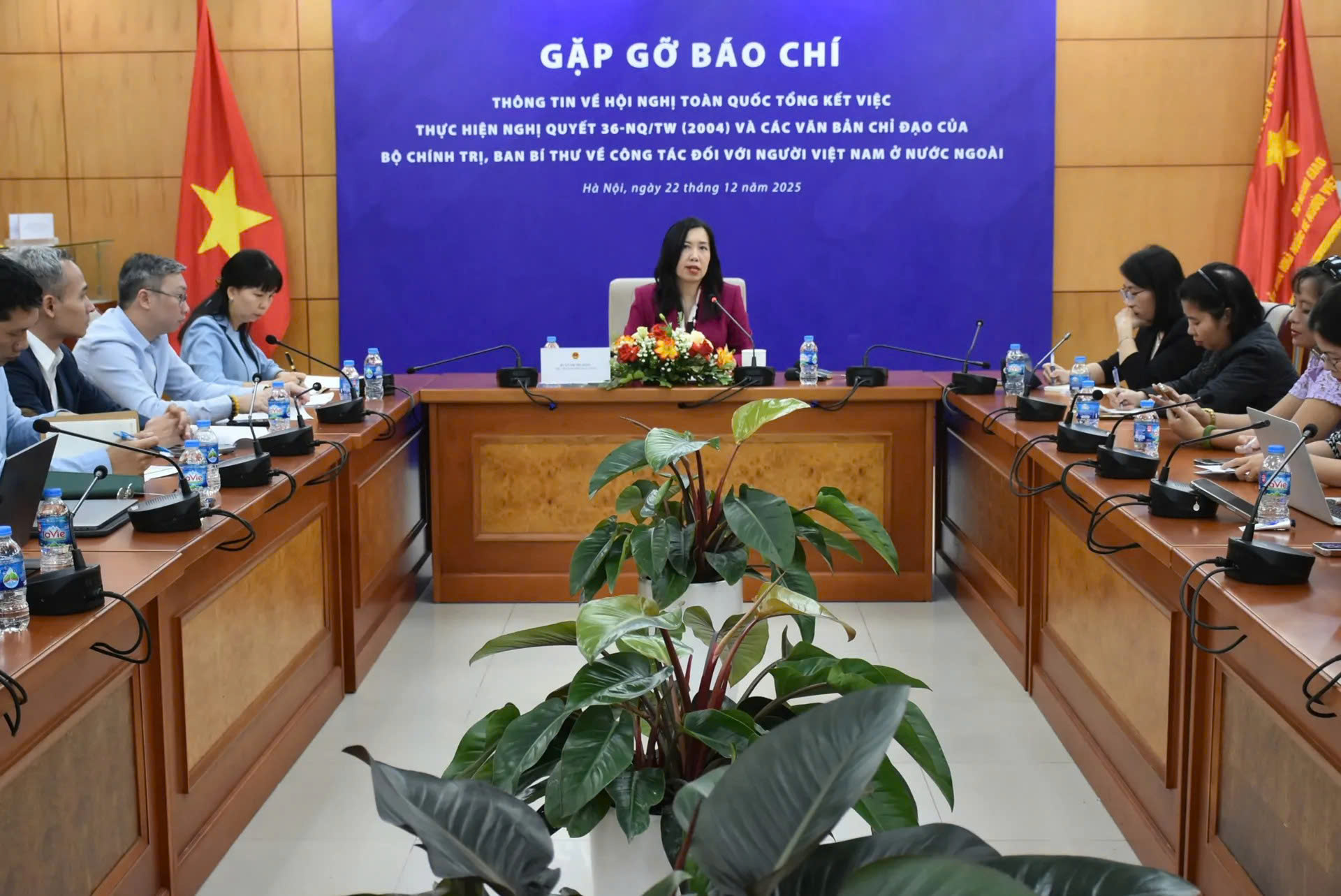
19:05 | 23/03/2025 16:32 | 23/12/2025News and Events

19:05 | 23/03/2025 16:30 | 23/12/2025Trade